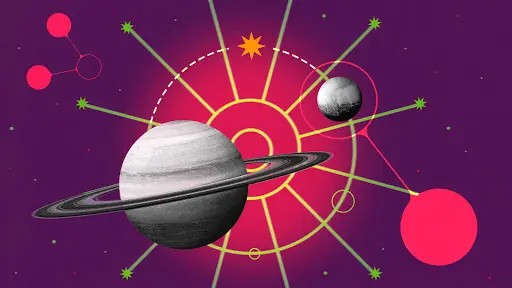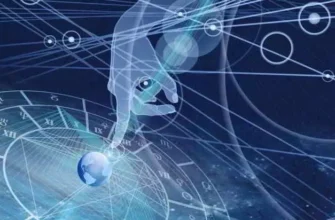The fire houses – first, fifth, and ninth – form the foundation of personal identity, creative expression, and philosophical development in synastry astrology. When another person’s planets occupy these life houses in a natal chart, they directly influence self-perception, confidence, and the capacity for authentic expression. These synastry house placements reveal how relationships shape individual identity and personal power. Understanding planetary influences in fire houses provides crucial insights into relationship dynamics, particularly how partners either strengthen or challenge each other’s sense of self and life direction through natal chart compatibility.
The First House: Immediate Identity Activation
The first house represents the physical body, personal appearance, and the immediate impression one projects into the world. When another person’s planets occupy the first house in synastry, they create instantaneous and visceral stimulation that profoundly affects self-awareness and personal identity.
Direct Personality Influence
Planetary placements in the first house generate automatic identification with the qualities symbolized by those planets. The house person experiences an immediate resonance with aspects of the planet person’s energy, as though recognizing something essential about themselves reflected through the other. This connection operates at an instinctual level, bypassing conscious analysis and creating immediate rapport or tension depending on the planetary nature.
The first house governs self-image and personal confidence. When planets occupy this sensitive area in relationship astrology, they directly shape how the house person perceives themselves and their ability to assert individuality. Benefic planets like Venus or Jupiter typically enhance self-confidence and create positive identification, while challenging planets may introduce self-doubt or force confrontation with uncomfortable aspects of identity.
Physical Presence and Energy Exchange
Beyond psychological influence, first house synastry affects physical presence and energetic exchange between individuals. The house person becomes acutely aware of their body, appearance, and physical expression when the planet person enters their space. This awareness may manifest as heightened self-consciousness or increased vitality depending on the planets involved.
Mars in the first house, for example, activates physical energy and assertiveness in the house person. They may feel more courageous, direct, and willing to take initiative when interacting with the Mars person. Conversely, Saturn in this position might introduce self-awareness bordering on self-criticism, causing the house person to question their adequacy or physical presentation.
Identity Formation Through Relationship
First house synastry aspects play crucial roles in identity formation, particularly in formative relationships or those occurring during periods of personal transition. The planet person serves as a mirror reflecting specific qualities back to the house person, allowing them to recognize and integrate previously unconscious aspects of self.
This mirroring function operates regardless of whether the reflection proves comfortable or challenging. Neptune in the first house might introduce confusion about identity boundaries, while Pluto could catalyze profound transformation in self-concept. The house person cannot remain unchanged by significant first house overlays, as these connections fundamentally alter self-perception and personal expression.
The Fifth House: Creative and Emotional Expression
The fifth house governs romance, creativity, pleasure, children, and all forms of self-expression that emerge from joy rather than obligation. Planetary placements in this life house affect the capacity for spontaneous emotional expression and creative manifestation.
Pleasure and Joy Activation
When another person’s planets occupy the fifth house in synastry, they directly influence what brings joy and how freely the house person can access pleasure. These placements color recreational activities, romantic expression, and the general ability to experience delight in life’s offerings.
The house person emotionally identifies with qualities symbolized by the planet person’s placements. If the other person’s Venus resides in the fifth house, the house person may experience heightened pleasure, easier access to romantic feelings, and greater appreciation for beauty when engaging with the Venus person. The relationship itself becomes a source of joy and creative inspiration.
Creative Collaboration and Expression
Fifth house overlays significantly impact creative expression and artistic collaboration. The planet person either facilitates or inhibits the house person’s creative flow depending on planetary nature and aspects. Jupiter in this position typically expands creative confidence and encourages risk-taking in artistic pursuits, while Saturn might introduce discipline that either structures creativity productively or creates blocks through excessive criticism.
The house person may discover new creative outlets or reconnect with dormant artistic interests through the relationship. The planet person’s energy activates latent creative potential, providing inspiration, practical support, or simply the courage needed to express authentic creative vision without fear of judgment.
Romantic Expression Patterns
Romantic dynamics reveal themselves clearly through fifth house synastry analysis. This house governs courtship, flirtation, and the playful dimensions of romantic connection. Planets here shape how the house person experiences and expresses romantic feelings specifically with the planet person.
Mars in the fifth house intensifies sexual attraction and passionate expression, creating dynamic romantic energy. Moon placements support emotional safety in romantic vulnerability, allowing the house person to express feelings without defensive barriers. Mercury encourages playful communication and intellectual flirtation that keeps romance engaging over time.
Limitation and Enhancement of Joy
Not all fifth house placements enhance pleasure and expression. Challenging planets or difficult aspects may introduce limitations that require conscious navigation. Saturn in the fifth house exemplifies this dynamic complexity. The Saturn person might initially inhibit the house person’s spontaneity and pleasure capacity through criticism, seriousness, or emotional unavailability.
However, this same Saturn placement can introduce valuable maturity to creative expression and romantic approach. The house person may develop greater respect for commitment, learn to find joy in sustained effort, or appreciate the depth that seriousness brings to pleasure. The key lies in whether Saturn’s lessons feel supportive or merely restrictive within the relationship context.
Pluto in the fifth house transforms creative expression and romantic experience entirely. The house person may discover intense creative power or experience profound shifts in what brings genuine pleasure. While this transformation proves valuable ultimately, the process involves confronting shadows around worthiness, expression, and the right to experience joy.
The Ninth House: Philosophical Growth and Meaning
The ninth house represents higher education, philosophy, religious beliefs, long-distance travel, and the search for meaning. Planetary overlays in this life house influence belief systems, learning capacity, and orientation toward personal growth.
Belief System Influence
When another person’s planets occupy the ninth house in synastry, they shape philosophical perspectives and religious or spiritual inclinations. The house person finds their worldview either supported and expanded or challenged and questioned through interaction with the planet person.
Jupiter placements typically expand philosophical horizons, encouraging the house person to explore new belief systems, engage with different cultures, or pursue higher education. The Jupiter person serves as a teacher or guide figure, naturally sharing wisdom and encouraging intellectual and spiritual growth.
Mercury in the ninth house stimulates philosophical discussion and intellectual exploration of meaningful topics. The house person engages more actively with ideas about life’s purpose, ethics, and truth when communicating with the Mercury person. These conversations catalyze personal development and refined understanding of complex concepts.
Conscious Growth Orientation
The ninth house governs conscious efforts toward self-improvement and personal evolution. Planets here either facilitate or obstruct the house person’s intentional growth work. Supportive placements help the house person learn from experience, integrate lessons, and maintain optimistic orientation toward development.
Sun in the ninth house illuminates the path of personal growth, helping the house person recognize meaningful directions and maintain confidence in their evolutionary journey. The Sun person naturally encourages expansion and supports the house person’s aspirations toward becoming their highest self.
Uranus in this position introduces revolutionary perspectives that fundamentally alter the house person’s understanding of life’s meaning. While potentially disruptive to established beliefs, Uranus awakens the house person to possibilities beyond conventional wisdom, catalyzing breakthrough insights and liberation from limiting philosophical frameworks.
Educational and Travel Experiences
Ninth house synastry often manifests through shared educational pursuits or travel experiences that expand both partners’ horizons. The planet person may introduce the house person to foreign cultures, academic disciplines, or spiritual practices that profoundly influence personal philosophy.
Venus in the ninth house creates harmony around philosophical matters and makes travel or educational experiences together particularly enjoyable. The house person appreciates the planet person’s perspectives and finds exploring new territories – whether physical or intellectual – deeply satisfying in their company.
Neptune here can introduce spiritual connection and shared mystical experiences, though distinguishing genuine wisdom from illusion requires discernment. The house person may idealize the planet person’s beliefs or project guru qualities onto them, necessitating eventual grounding in reality.
Obstacles to Learning and Growth
Challenging ninth house placements introduce obstacles that ultimately serve growth but require conscious navigation. Saturn in the ninth house may manifest as the Saturn person questioning the house person’s beliefs, introducing doubt about meaning and purpose, or presenting philosophical pessimism that challenges naive optimism.
These Saturnian challenges, while uncomfortable, can mature the house person’s philosophical perspectives. By questioning easy answers and demanding rigorous thinking, Saturn helps develop authentic wisdom rather than borrowed beliefs. The house person learns to establish meaning through personal experience rather than accepting inherited worldviews uncritically.
Pluto in the ninth house transforms belief systems entirely, often through crisis or intense experience. The Pluto person catalyzes breakdown of established meaning structures, forcing the house person to rebuild understanding from the ground up. This death-rebirth process around philosophy and meaning proves profound and irreversible, fundamentally altering how the house person perceives existence.
Integration of Fire House Overlays
The life houses collectively shape identity formation, creative expression, and philosophical orientation. When multiple planets occupy these houses in synastry, the relationship significantly influences the house person’s self-concept and life direction. Understanding these placements helps partners navigate their influence consciously.
Empowerment Through Relationship
Positive fire house overlays empower the house person to more fully embody authentic identity, express creativity without inhibition, and pursue meaningful growth. The planet person serves as catalyst activating latent potential and supporting the house person’s evolution into their highest expression.
Relationships featuring supportive fire house synastry often feel energizing and inspiring. The house person experiences increased vitality, confidence, and sense of purpose through connection with the planet person. These relationships facilitate self-actualization and help individuals become more fully themselves.
Challenges and Growth Opportunities
Difficult fire house overlays present challenges that ultimately serve growth when approached consciously. The planet person may trigger insecurity, creative blocks, or philosophical crisis, forcing the house person to confront limitations and develop greater authenticity.
Rather than viewing challenging placements as purely negative, astrology encourages recognizing their transformative potential. Saturn, Pluto, and other difficult planets in life houses often appear in relationships that fundamentally alter identity, creative capacity, and worldview – changes that prove necessary for soul evolution despite temporary discomfort.
Maintaining Individual Identity
While fire house overlays powerfully influence personal identity, maintaining sovereignty remains essential. The house person must avoid losing themselves entirely in the planet person’s influence or defining identity solely through relationship. Healthy integration involves allowing influence while preserving independent sense of self.
Awareness of synastry dynamics helps partners consciously navigate these powerful influences. The planet person can recognize their impact on the house person’s identity and take responsibility for wielding that influence compassionately. The house person can acknowledge genuine influence while maintaining boundaries that protect authentic selfhood.
Synastry as Evolutionary Tool
Life house overlays in synastry serve soul evolution by activating growth opportunities through relationship. These placements reveal where individuals influence each other’s development most directly. Understanding fire house dynamics allows partners to consciously collaborate in mutual empowerment and growth.
Relationship compatibility extends beyond harmony to include capacity for facilitating each partner’s highest expression. Fire house synastry illuminates whether relationships support authentic identity, creative expression, and meaningful growth or whether they constrain and diminish individual potential. This awareness enables conscious choice about which relationships to cultivate and how to navigate their transformative influence.







